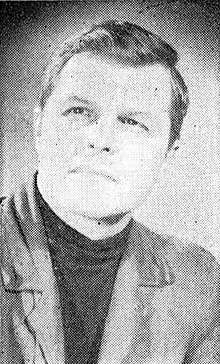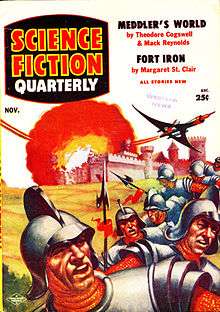Theodore Cogswell
Theodore Rose Cogswell (March 10, 1918 - February 3, 1987) was an American science fiction author.


During the Spanish Civil War, he served as an ambulance driver for the Republicans as part of the Abraham Lincoln Brigade.
His earliest work to be published in a genre magazine, the novella, "The Spectre General" in the magazine Astounding (June 1952), was a humorous tale in which a long-forgotten maintenance brigade of the Imperial Space Marines has the potential of reinvigorating a declining Galactic empire. It was selected as one of the genre's best novellas by members of the Science Fiction Writers of America and reprinted in The Science Fiction Hall of Fame. Cogswell wrote almost 40 science fiction stories, most of them humorous, and was co-author of a novel of the Star Trek franchise.
Cogswell was also the editor of the long-running "fanzine for pros", Proceedings of the Institute for Twenty-First Century Studies, a collection of which was published during 1993. In this, writers and editors discussed their and each other's works.
Bibliography
- The Wall Around the World (1962) (short stories)
- The Third Eye (1968) (short stories)
- Spock, Messiah! (1976) (Star Trek novel with Charles A. Spano, Jr.)
- The Friggin Falcon (1966) (poem)
- PITFCS: Proceedings of the Institute for Twenty-First Century Studies (1993)